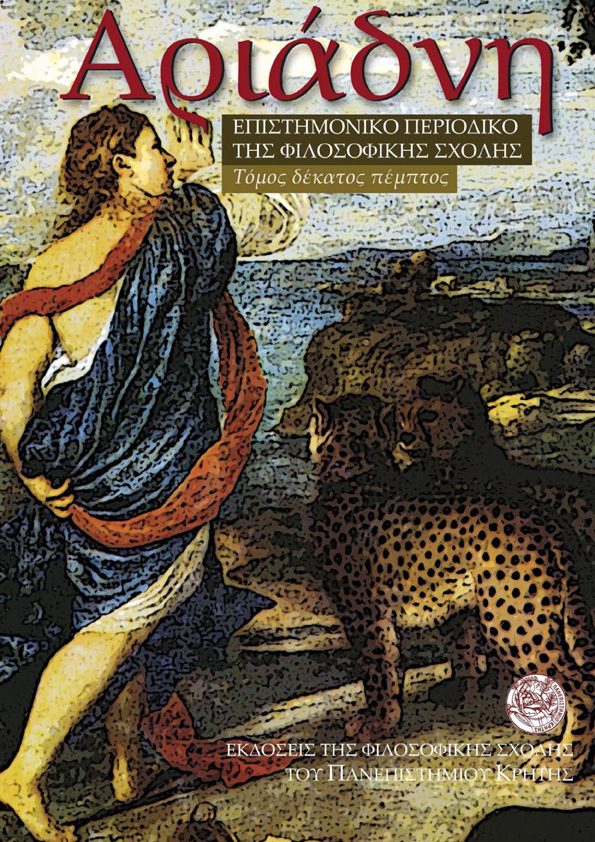Interpretation and misinterpretation of Aristotle's Poetics
DOI:
https://doi.org/10.26248/ariadne.v15i0.916Abstract
«[A] LONG series of misunderstandings and overstatements and corrections [ ... ] form the history of the Poetics since the Renaissance" wrote Gilbert Murray in 1920, and the situation has not greatly improved ever since. This is due to the intensive study of Aristotle's Poetics itself, which began in the Renaissance and continues until today. Several misunderstandings have been established by uncritical repetition and have entered mainstream interpretation, starting with the very definition of tragedy and including the widespread assumption that Aristotle underestimates or ignores the significance of music and performance (melopoiia and opsis) of drama, although they both are included in the six qualitative elements of the composition of tragedy. Aristotle was, of course, the original historian of theatre and author of such works as Didaskaliai (Productions) and Dionysiac victories.
Downloads
Published
How to Cite
Issue
Section
License
Authors retain copyright and grant the journal right of first publication with the work simultaneously licensed under a Creative Commons Attribution-NonCommercial-ShareAlike 4.0 International License that allows others free use of the work for non-commercial purposes as long as the author/s and the journal are attributed properly and the new creations are licensed under identical terms (Creative Commons Attribution-NonCommercial-ShareAlike 4.0 International License).


